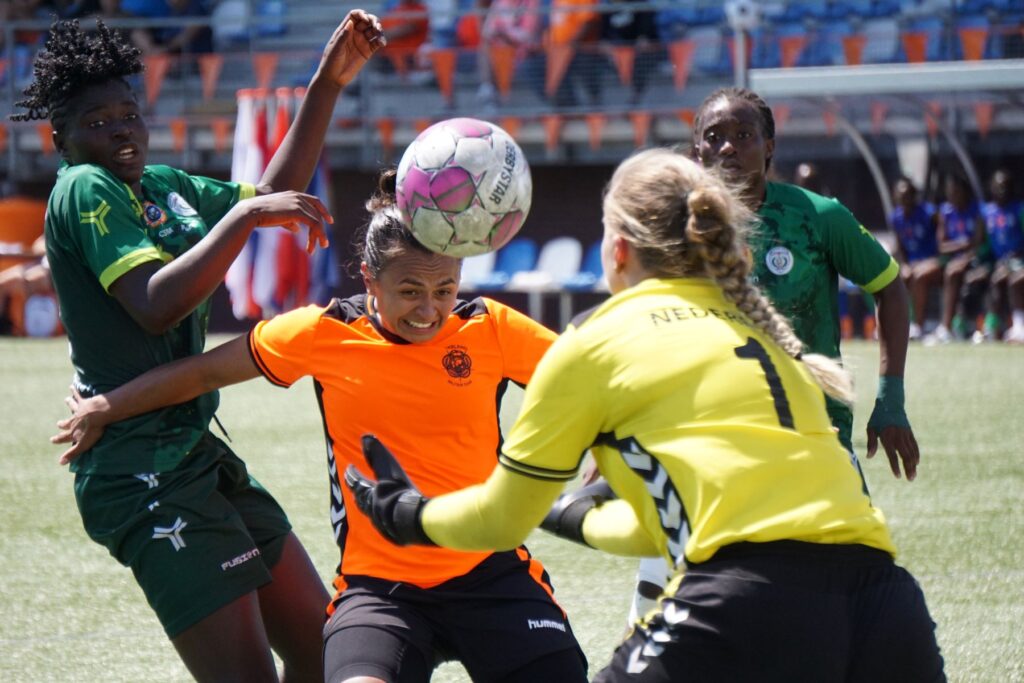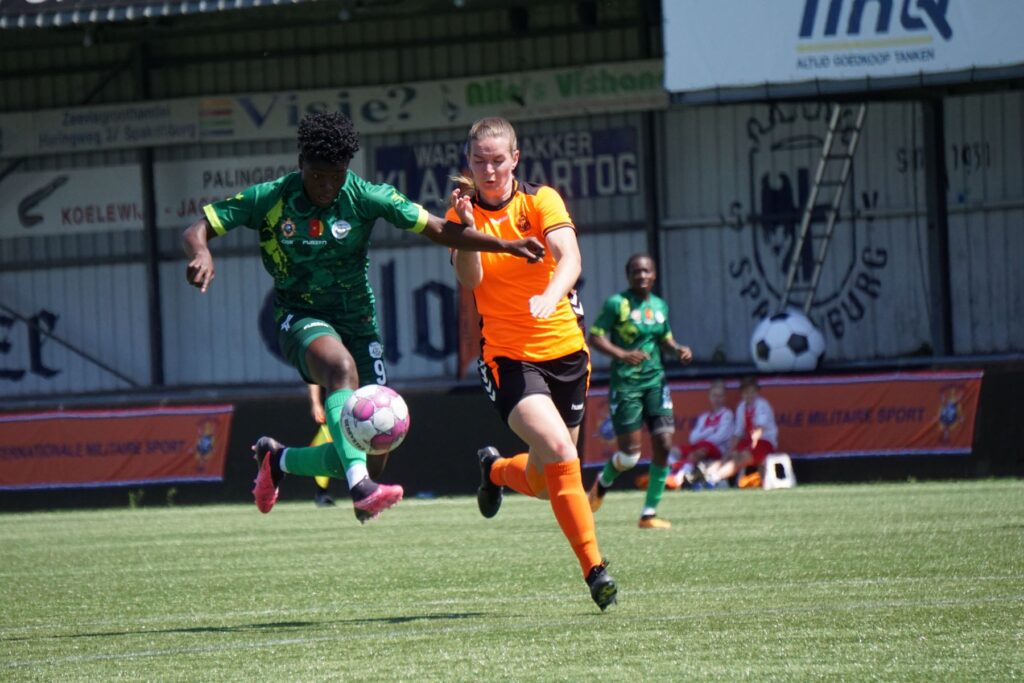Three parachutists hover above football complex De Westmaat in Spakenburg, the Netherlands. Moments later, they land with extreme precision on the center of the soccer field of IJsselmeervogels, one of the two clubs from the small village that play there. Their possessions: A Korean flag, a French flag and a ball. The final of the Women’s World Military Football Championship is about to begin.

Parachuting is a sport close to the work of defense. But with CISM, the International Military Sports Council, there is an institution that organizes championships and events in a variety of sport. From boxing to golf. From orienteering to padel. There are about thirty sports in which military personnel can compete with each other. “And you really have to be in the military to be allowed to participate in championships and to get into the military selection. Office staff can also participate at national level, but not at international level”, says lieutenant-colonel Jan Maree, chief delegation of CISM.
Brenda Tabe
There are some exceptionally good athletes among the participants. In the Cameroon squad, for example, Brenda Tabe is the striker. She plays not just for the national military team, but is also part of the Under 23 national selection. She did not score in the 4-0 match for the bronze medal against host country the Netherlands, but at an earlier World Cup, the player of Amazone FAP stood out by becoming the top scorer of the tournament.
CISM’s sports activities have a strong recruiting character. It shows that at the Ministry of Defence sports can be played fanatically and at a decent level. It is part of the promotion for the work. “We want to propagate our sporting image as an armed force. The main reason why boys and girls want to join the armed forces is because they want to be in the service, but our attractive sports program can also contribute to that.”

The motto of the CISM is ‘Friendship through sports’. The armed forces meet each other in a different way through sport, rather than on a mission, which can create an international friendly bond. This is sometimes difficult at an institution such as the Ministry of Defence. After all, there are war zones and countries that do not recognize each other and are in conflict with each other. “We saw such a situation at the Judo World Cup last year, where an Israeli judoka and an athlete from Palestine stood against each other, but one of them refused to compete. That is a pity, because it is precisely the intention to do so.”
Russia
And because there are conflict situations in the world, not every country of the 140 member nations is always welcome. “You can compare the CISM a bit with IOC, only the latter has more influence and power. But we also have the rule: in principle everyone is welcome. That does not apply these days for the Russians and Belarusians, we also have that line. But for example, North Korea wanted to come, but did not receive visa from the Ministry of Foreign Affairs. In the event of the Olympic Games, the IOC can ensure that athletes from North Korea can participate. We can’t do that.”
The southern neighbors of the Koreans who were not there, were present were present at Spakenburg and let their feet do the talking. France was defeated in the final, so the military team of the Republic of Korea could lift the trophy.